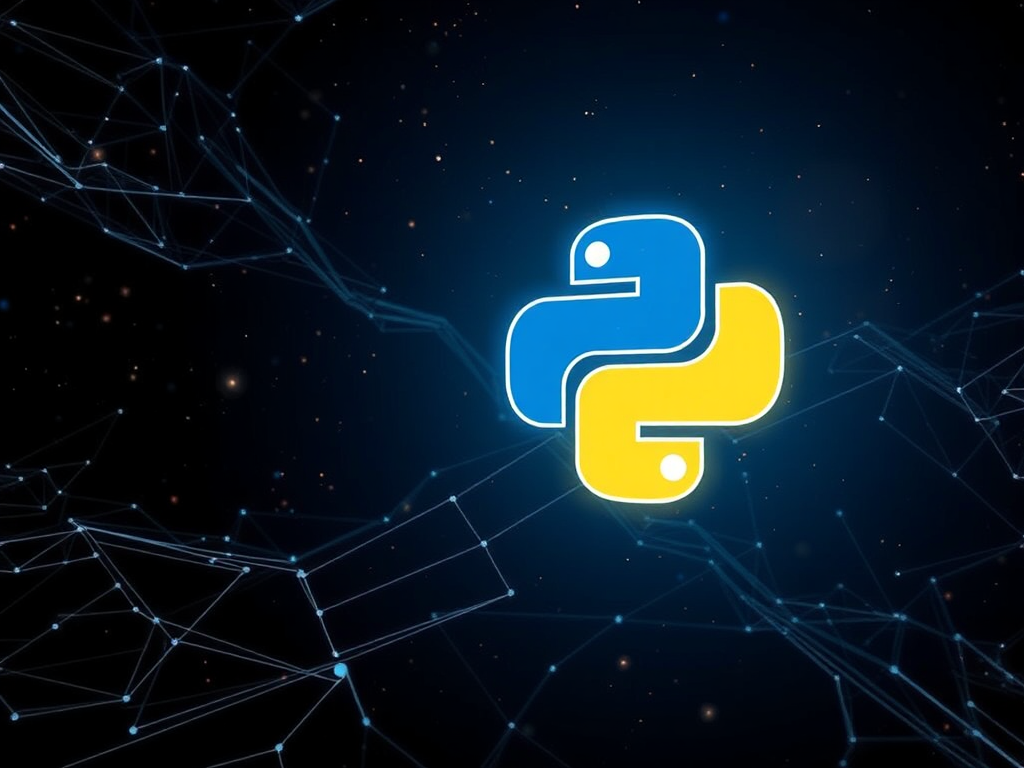Hey, dear Python enthusiasts! Today we're diving into an exciting topic - the application of Python in cloud computing. Have you ever wondered if those seemingly complex cloud services actually have Python behind them? Let's unveil this mystery and see how Python shines in the cloud!
Exploring the Cloud
Remember the first time you heard the term "cloud computing"? Did it seem distant and unreachable? In reality, cloud computing is like a super powerful remote computer, and Python is our magic wand to control it. Imagine just waving this wand (writing a few lines of Python code) to drive thousands of computers for you. Isn't that cool?
But wait, you might ask, "I only know a little Python, can I work with cloud computing?" Don't worry! Python's simplicity and power make it a favorite in the cloud computing world. Whether you're a newbie or a pro in Python, there's a stage for you in cloud computing.
Dancing on the Cloud
So, what exactly can Python do in cloud computing? Let's explore through a few examples:
1. The Wizard of Data Processing
Imagine you have loads of data to process, like analyzing nationwide weather data. With a regular computer, it might take days. But with Python and cloud computing, this task becomes a breeze.
from pyspark.sql import SparkSession
spark = SparkSession.builder.appName("WeatherAnalysis").getOrCreate()
weather_data = spark.read.csv("gs://your-bucket/weather_data.csv", header=True)
avg_temp = weather_data.groupBy("city").avg("temperature")
avg_temp.show()
See, with just a few lines of code, we can handle massive amounts of weather data! This is the magic of Python in the cloud - it makes complex tasks simple and the impossible possible.
2. The Magician of Serverless Computing
Remember when writing programs, we always had to worry about server configuration and maintenance? With Cloud Functions, those worries are gone. Here's how to write a simple cloud function in Python:
def hello_world(request):
"""A simple cloud function example"""
name = request.args.get('name', 'World')
return f'Hello, {name}!'
Just like that! You only need to focus on writing the functional code, and the rest (like server management, scalability, etc.) is handled by the cloud platform. Isn't this a programmer's dream life?
3. The Reliable Assistant in AI
Python is renowned in AI and machine learning, and cloud computing provides powerful computational support for these complex AI models. For example, we can use Google Cloud's AI Platform to train and deploy machine learning models:
from google.cloud import aiplatform
aiplatform.init(project='your-project-id')
job = aiplatform.CustomTrainingJob(
display_name="my_training_job",
script_path="training_script.py",
container_uri="gcr.io/cloud-aiplatform/training/tf-cpu.2-2:latest"
)
job.run(
model_display_name="my_model",
dataset=my_dataset,
sync=True
)
See? With just a few lines of code, we launched an AI model training task. Python + cloud computing makes AI accessible!
Strolling in the Cloud
By now, you might have a preliminary understanding of Python's application in cloud computing. But this is just the tip of the iceberg! Python's applications in the cloud are vast, such as:
- Automated Operations: Using Python scripts to automatically manage and monitor cloud resources.
- Big Data Analysis: Combining with frameworks like Hadoop and Spark for massive data processing.
- Web Application Development: Quickly building and deploying cloud-based web applications with Django or Flask.
- IoT Device Management: Controlling and managing IoT devices through cloud platforms.
Each field is a vast territory waiting for you to explore and conquer!
Adventuring in the Cloud
Learning Python's application in cloud computing is like embarking on a wonderful adventure. You'll face challenges and grow along the way. Here are some tips to help you go further on this adventure:
-
Build a Foundation: A solid Python foundation is the beginning of everything. If you're not familiar with Python yet, take some time to learn the basics.
-
Understand Cloud Concepts: Before delving into Python cloud applications, understand some basic cloud computing concepts like IaaS, PaaS, SaaS, etc.
-
Practice Hands-On: Theory is important, but practice is key. Try using free cloud services to deploy your Python projects.
-
Focus on Security: In the cloud environment, security is crucial. Learn how to protect your applications and data.
-
Keep Learning: Cloud technology evolves quickly, so develop a habit of continuous learning to keep up with the latest trends.
Remember, everyone’s learning curve is different. Sometimes you may find it difficult, but don't lose heart! These challenges make our journey more interesting.
Envisioning the Cloud
Looking to the future, the prospects for Python in cloud computing are incredibly broad. With the development of technologies like 5G, edge computing, and quantum computing, Python's role in the cloud will become increasingly important. Maybe one day, we can use Python to control quantum computers distributed around the world to solve major challenges facing humanity.
Imagine, the code you write in Python could run on servers on Mars, helping humans explore the mysteries of the universe. Isn't that exciting? This is the charm of Python + cloud computing - it's not just a technology, but a tool to realize dreams.
Conclusion
Dear reader, our cloud journey is temporarily coming to an end. But remember, this is just the beginning. The application of Python in cloud computing is so vast, and what we discussed today is just a drop in the ocean.
I sincerely hope this article inspires your interest in Python and cloud computing. Maybe you still feel cloud computing is distant, but trust me, taking the first step puts you ahead of most people.
Finally, I'd like to ask you: After learning about Python's applications in cloud computing, which aspect interests you the most? Is it data processing, artificial intelligence, or serverless computing? Feel free to share your thoughts in the comments, so we can discuss and grow together!
Remember, in the world of programming, the only limit is your imagination. So, let's join hands and weave our Python dreams in the cloud!
 Previous
Previous












